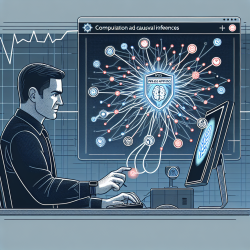Understanding the Impact of SARS-CoV-2 Vaccination Intentions
The recent study titled A National Survey Assessing SARS-CoV-2 Vaccination Intentions: Implications for Future Public Health Communication Efforts offers insightful findings that can significantly enhance the strategies of public health practitioners. As we navigate through the ongoing challenges posed by COVID-19, understanding public intentions regarding vaccination is critical for effective communication and intervention strategies.
Key Findings from the Research
The study surveyed 3,159 U.S. adults to assess their intentions to receive the SARS-CoV-2 vaccine. The findings revealed that:
- Participants had a high intention to receive the vaccine, scoring an average of 5.23 on a 7-point scale.
- Intentions increased significantly to 5.47 when a healthcare provider recommended the vaccine.
- Factors such as less education and working in healthcare were associated with lower vaccination intent.
- Liberal political views, altruism, and COVID-19-related health beliefs were linked to higher vaccination intent.
Implications for Practitioners
These findings suggest several actionable insights for practitioners:
- Leverage Provider Recommendations: The study highlights the power of healthcare provider recommendations in increasing vaccination intent. Practitioners should ensure that providers are well-informed and confident in discussing the vaccine with patients.
- Targeted Communication: Tailoring communication strategies based on sociodemographic and psychosocial variables can enhance vaccine uptake. For instance, addressing educational gaps and providing clear, accessible information about the vaccine's benefits can mitigate hesitancy.
- Utilize Social Norms: Campaigns that emphasize the high level of intent among peers can leverage social norms to encourage vaccination. Highlighting community-wide intentions can create a sense of collective responsibility and urgency.
Encouraging Further Research
While the study provides valuable insights, it also opens avenues for further research. Practitioners are encouraged to explore:
- The role of political ideology in shaping vaccination intentions and how targeted messaging can address these divides.
- The impact of perceived threat and fear on vaccination behavior over time, especially as the pandemic evolves.
- Effective strategies for educating healthcare workers who may exhibit vaccine hesitancy.
By integrating these insights into public health strategies, practitioners can play a crucial role in increasing vaccine uptake and ultimately reducing COVID-19-related morbidity and mortality.
To read the original research paper, please follow this link: A National Survey Assessing SARS-CoV-2 Vaccination Intentions: Implications for Future Public Health Communication Efforts.










